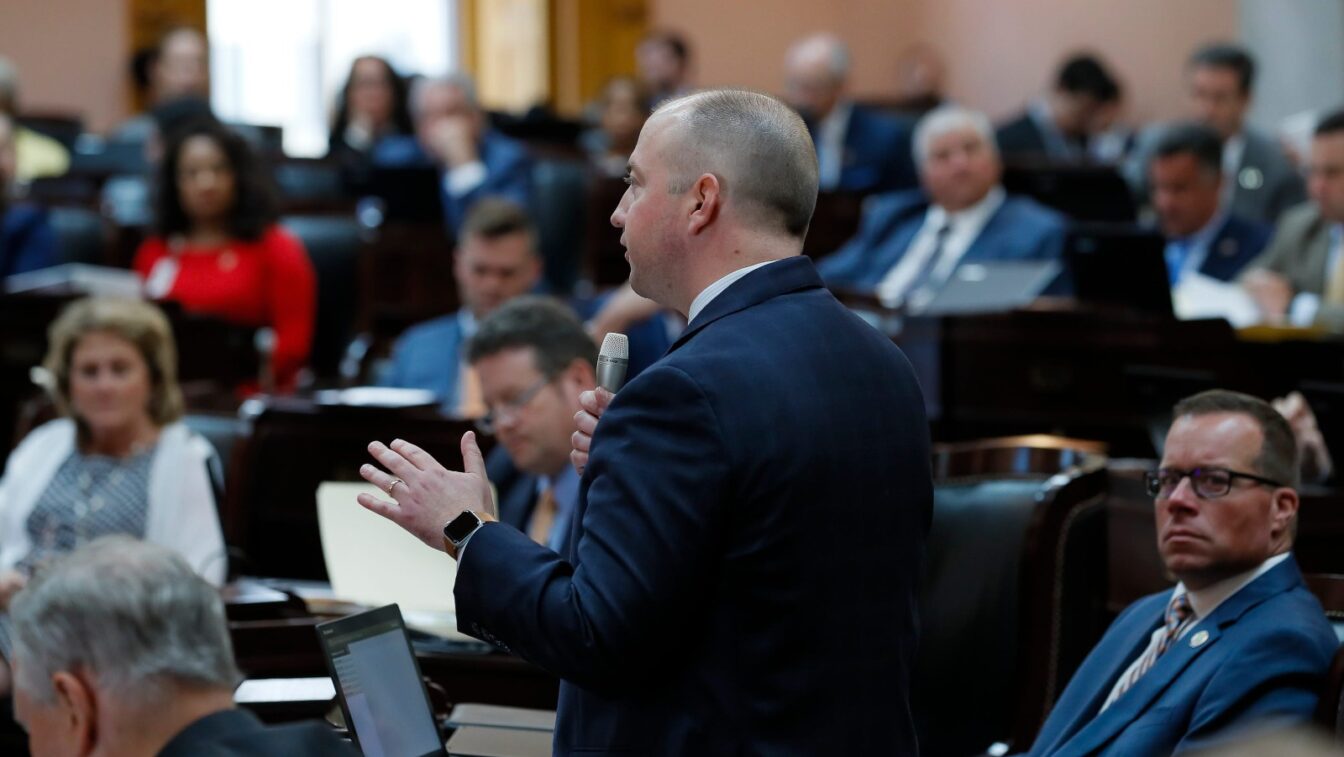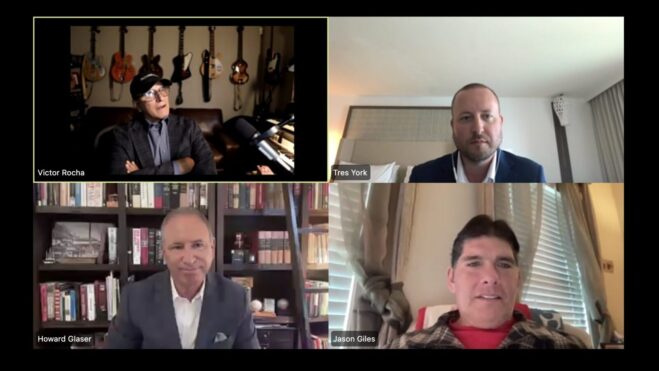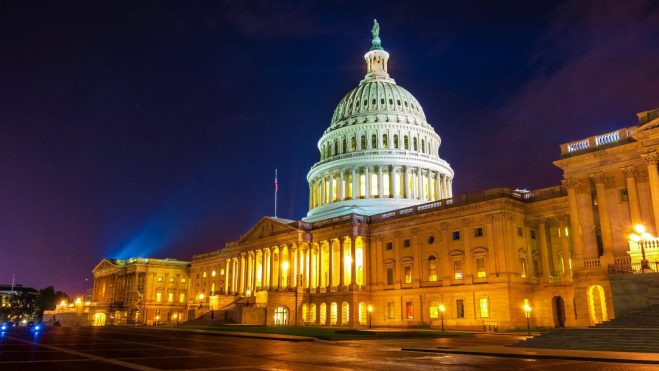Ruddock Report: Is What’s Bad For Sports Betting Good For Online Casino?
The tax-rate headwinds faced by legal sportsbooks could act as tailwinds for iCasino legalization
6 min

Our monthly look at the online gambling landscape includes the current legal and regulatory landscape, prospective online casino and online poker states, and significant trends to watch.
Trends to watch: Poker, late efforts, shifting winds
Trend no. 1: Poker continues to make progress
In the April edition of the Ruddock Report, I highlighted some tailwinds for online poker, with Pennsylvania joining the Multi-State Internet Gaming Agreement (MSIGA) and efforts in Connecticut to make the Nutmeg State a member.
This month, there is more good news for online poker, with Rush Street Interactive (RSI) unofficially announcing a major expansion of its operations.
From my Straight to the Point Substack newsletter:
“As first reported by Poker Industry PRO, [BetRivers Poker Social Media and Content Manager] Harry Corvese … revealed the expansion plans on the operator’s official Discord server: ‘I assure you, forever is not an accurate timeline for when we will be merging,’ Corvese wrote in response to players asking about expansion plans. ‘While I can’t provide a locked-in date yet, it is coming very soon.’
“RSI has a monopoly on the Delaware market due to its contract with the state. The company will also be the first to launch in West Virginia, which legalized online gambling in 2019. Still, due to its small population, poker operators have eschewed launching in the state.”
Trend no. 2: Maine’s fashionably late online casino push
Following the successful rollout of mobile sports betting in November 2023, Maine quickly shifted its focus to exploring iGaming. Strife within the Maine Gambling Control Unit (MGCU) and navigating the tribal-commercial divide proved to be significant hurdles that hindered efforts in 2024.
The state quietly introduced an online casino bill in 2025, LD 1164, sponsored by state Rep. Ambureen Rana. The effort was on death’s door when it failed to advance out of the Joint Veterans and Legal Affairs Committee on April 7, but was given a second life when it was reported out of committee last Friday.
The legislation would grant exclusivity to the state’s tribes, and, as no one should be surprised to hear, the state’s two casinos, operated by Penn and Churchill Downs, opposed the bill.
Trend no. 3: Inhospitable climate creates greater need for iCasino
Setting aside the existential threat of prediction markets, sports betting operators are starting to feel like a frog in a pot of water that is coming to a boil.
A 5% tax increase in Maryland and a new per-wager fee in Illinois, along with active efforts to raise taxes in North Carolina, Louisiana, Ohio, and New Jersey, are increasingly stiff headwinds that could lead to more forceful calls for the legalization of online casinos.
Here’s a quick look at the successful or active tax-hike efforts:
- [PASSED] Maryland: Gov. Wes Moore’s budget proposal included doubling the sports betting tax rate from 15% to 30%, alongside increasing the table games tax at brick-and-mortar casinos from 20% to 25%. Moore’s proposal for the sports betting tax was reduced to 20% by the House Ways and Means Committee in March. The 5% increase was included in the state’s budget.
- [PASSED] Colorado: HB 1311, a bill that eliminates promotional bet deductions has been signed by Gov. Jared Polis. Though it’s not a direct tax rate increase, it will impact operator margins and promotional strategies.
- [PASSED, awaiting governor signature] Illinois: Lawmakers, in a last-minute budget amendment, imposed a new fee on licensed sportsbooks as they rushed to meet the state’s budget deadline. The new per-wager fee is 25 cents per bet for the first 20 million wagers accepted and 50 cents per wager after that.
- [ACTIVE] Louisiana: The original version of HB 639 passed the House Appropriations Committee in a 20-1 vote in April and would have bumped the tax rate to 32%. The amended version that passed the House reduced the rate to 21.5%. The legislation passed by a 73-15 vote (it requires a two-thirds majority). The bill moved over to the Senate, passed a committee vote, and can next be heard on the Senate floor.
- [ACTIVE] Ohio: After an effort by Gov. Mike DeWine to double the sports betting tax rate (for the second time in three years) failed, a new legislative proposal has been put forth. SB 199 would add a 2% sports betting handle tax to the current 20% tax on revenue. If passed, Ohio would become one of the most heavily taxed sports betting states, as a 2% handle tax is equivalent to a 20-25% tax on revenue. The bill would allow operators to deduct the 0.25% federal excise tax on handle from their state tax obligations.
- [ACTIVE] North Carolina: The North Carolina Senate budget (passed in April) included a significant tax increase on sports betting, bumping the rate from 18% to 36%. The House budget has yet to be released (the budget deadline is July 1, 2025). The House Education Appropriation Subcommittee is reviewing the budget, and early indications suggest the House may not support doubling the tax rate. And, as it has done elsewhere, the Sports Betting Alliance has been urging North Carolinians to contact their lawmakers.
- [ACTIVE] New Jersey: Gov. Phil Murphy proposed increasing the sports betting tax rate from 13% to 25% and the iGaming tax rate from 15% to 25% in his 2025 budget. The proposal has some momentum, but faces pushback from the industry and some lawmakers, who argue it could harm a thriving market that has created jobs and generated significant revenue. The budget deadline is June 30.
2025 online casino bills
The Ruddock Report will revise this list as new bills are introduced.
LEGAL ONLINE GAMBLING ONLINE POKER-ONLY
ACTIVE LEGISLATION LEGISLATIVE EFFORTS FAILED
Active bills
New York
- S 2614, sponsored by Sen. Joseph Addabbo, Jr.
New York’s annual online gambling bill has been introduced, but with all eyes 100% focused on the downstate casino licenses expected to be awarded at the tail end of this year, there’s no room for online casinos.
Massachusetts
- HD 4084, sponsored by Rep. Daniel Cahill
- SD 2240, sponsored by Sen. Paul Feeney
- HD 2393, sponsored by Rep. David Muradian (text to come)
Massachusetts has online casino bills, but they aren’t making much noise.
Illinois
As I wrote in Straight to the Point, “Two online casino bills are under consideration: SB 1963, sponsored by state Sen. Cristina Castro, and HB 3080, sponsored by state Rep. Edgar Gonzalez. … The problem is, (almost) no one wants it.” This is evidenced by nearly 1,000 witnesses testifying against online casinos at a recent hearing. March polling from Tulchin Research indicates opponents are winning the public perception battle, as respondents overwhelmingly view online gambling as a more addictive product that will lead to increased rates of problem and underage gambling.
Maine
- LD 1164, sponsored by Rep. Ambureen Rana
The legislation allows each of the state’s four tribes — Houlton Band of Maliseet Indians, Mi’kmaq Nation, Passamaquoddy Tribe (with two reservations: Indian Township and Pleasant Point), and Penobscot Nation — to offer online casino gambling.
The bill calls for a $50,000 licensing fee and a 16% tax rate, with funds distributed as follows:
- 3% deposited in the Gambling Addiction Prevention and Treatment Fund
- 3% deposited in the E-9-1-1 fund
- 3% deposited in the Opioid Use Disorder Prevention and Treatment Fund
- 2% deposited in the Emergency Housing Relief Fund
- 3% deposited in the Maine Veterans’ Homes Stabilization Fund
Inactive bills:
New Hampshire
- SB 168, sponsored by Sen. Tim Lang
Despite passing the committee stage, Lang “tabled” the bill due to opposition. It can be brought back later in the session, but nothing on the ground has changed that would indicate progress is happening behind the scenes.
Arkansas
- HB1861, sponsored by Rep. Matt Duffield
A late push came up short in Arkansas, as Rep. Duffield’s legislation was withdrawn and recommended for interim study by the House Judiciary Committee. The bill emerged late in the session (which seems to be the best way to pass a gambling expansion bill these days), but the stakeholder divide between Saracen Casino (pro) and Oaklawn (against) was too large to overcome.
Maryland
Legislation once again stalled in committee, and the absence of online casino revenue in the state’s proposed budget deal between the legislature and Gov. Moore signals the end of 2025 efforts.
Virginia
A newer contender in the online casino landscape, Virginia ran into similar concerns from unions and brick-and-mortar stakeholders that have plagued states like Maryland and New York. The proposed legislation failed to gain traction in either chamber, with bill sponsors pulling them and announcing they will reintroduce bills in 2026.
Wyoming
- HB 162, sponsored by Rep. Bob Davis
Efforts to legalize online casinos in Wyoming failed to gain the necessary support from the committee and are effectively dead. Despite a favorable report from Spectrum Gaming, Wyoming tribes voiced concerns that online gambling would cannibalize their brick-and-mortar properties.
Indiana
- HB 1432, sponsored by Rep. Ethan Manning
After running into opposition, including cannibalization concerns, Indiana’s annual effort to legalize online casino gambling (and online lottery sales) once again came up short. One glimmer of hope as we look ahead to 2026 is the passage of a bill prohibiting online lottery couriers, with Rep. Manning saying the goal is to allow the state lottery to start on equal footing when online lottery is legalized.
Hawaii
Separate versions of a mobile sports betting bill passed the House and Senate, with the details now being hashed out by a conference committee. The state’s online casino bills failed to gain any support.





